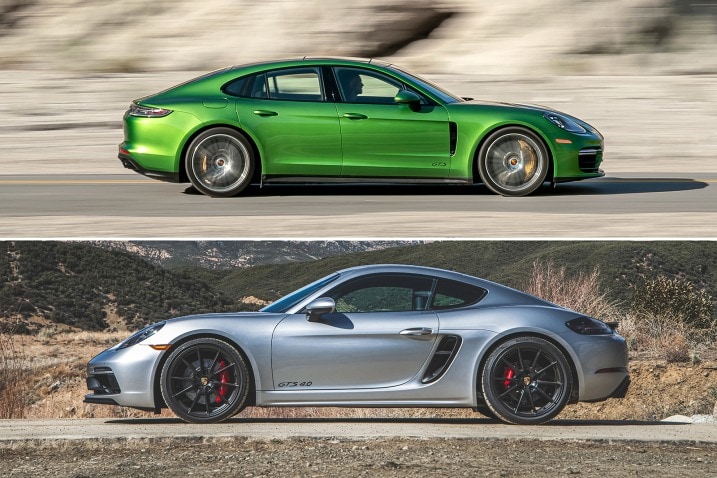If you don't know the difference between a coupe and a sedan, don't worry, you're not alone. Coupes and sedans are two of the oldest automotive body styles, but they aren't as popular as they once were. The automotive industry usually labels a two-door car as a coupe and a four-door car as a sedan, but there's more to it than that. Although both types of vehicles are simply considered "cars" by most people, each has its own unique characteristics, benefits and drawbacks.
What is a coupe?
A coupe is usually referred to as a two-door car with a fixed roof. However, if you want to get technical, the Society of Automotive Engineers (SAE) says a coupe is a fixed-roof car with less than 33 cubic feet of rear seat space regardless of the number of doors.
Most sports cars, like the Ford Mustang, are usually coupes because they look sportier than sedans. But as with many coupes, the Mustang is also offered as a convertible. The BMW 8 Series coupe and Toyota GR86 are very different but are classified as coupes. Some coupes, like the Toyota GR Supra, have a hatchback instead of a traditional trunk. It gets tricky with the Chevrolet Corvette because it's a coupe with a removable targa top or roof panel, but it's not retractable like a soft top or hardtop on a convertible.
As for passengers, some coupes only seat two, but many have a 2+2 layout for four passengers. Coupes also have a sleek, sloping roofline that lends a sporty look. Long doors are another characteristic of coupes.
What is a sedan?
A sedan is a car with four doors and a fixed roof. The SAE considers a sedan to be a car that provides 33 cubic feet of rear seat space or more.
A sedan is one of the most common types of cars on the road and includes popular models like the Toyota Camry and Honda Accord. Sedans used to be very common, but the popularity of trucks, SUVs and crossovers has dwindled their numbers. A sedan can be as small as the Nissan Versa or as large as the Rolls-Royce Phantom. Most sedans seat five passengers, but some luxurious models only have two rear seats.
As with coupes, some sedans have hatchback-style trucks. These are sometimes referred to as sportbacks or liftbacks and have a sloping roofline like a coupe. The Tesla Model S and Audi A7 are two examples of sedans with hatchbacks.
What's the deal with some sedans being called coupes?
BMW and Mercedes have blurred the lines between sedans and coupes with a few four-door models that have "coupe" in the name. The Mercedes-AMG GT 4-door Coupe (yup, that's the actual name) is a sedan, and a large one at that. But it does have a sporty-looking sloping roofline that gives it a coupe-like design. The coupe version of the sedan is simply called the Mercedes-AMG GT.
BMW is also guilty of calling sedans coupes. The 2 Series, 4 Series and 8 Series all offer a Gran Coupe model. It's essentially the sporty sedan model of each lineup, which also consists of a coupe and convertible.
